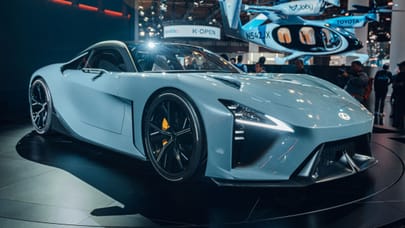
Mythbusting the world of EVs: are today's lithium-ion batteries obsolescent?
The move towards solid-state batteries means today's bulky efforts will become useless, right? Err...
I had a conversation recently with a senior Nissan engineer about solid state batteries, one of those buzzword new technologies that make you imagine the world will never be the same again.
Today’s battery cells have gel electrolyte between each anode and cathode. That gel needs cooling, especially when the car is being rapid charged. The liquid coolant and the passages it runs through inevitably add weight and bulk. Also, manufacturing these is very tricky.
A solid state battery replaces the gel with a solid electrolyte that won’t overheat, so needs no bulky cooling system. By Nissan’s reckoning we’re looking at half the cost per kWh versus today’s gel batteries, and twice the energy density. They would charge three times as fast, and sustain that to 100 per cent.
Come on then, Mr Nissan, let’s be having it. Ah, says he, not so fast. Nissan is probably at or near the head of the race for solid state batteries, but it’s still very much lab-scale. And when they do go into production, they’ll need largely new car platforms to take advantage.
That’s likely to mean a 2028 intro. And Nissan and its Alliance partners have several cars to launch before (and after) then on what is today a pretty new mid-size platform and the yet-unseen smaller one that supports the R5. So gel batteries will still be fitted under new cars, and will still be being improved, beyond the middle of the next decade.
Top Gear
Newsletter
Thank you for subscribing to our newsletter. Look out for your regular round-up of news, reviews and offers in your inbox.
Get all the latest news, reviews and exclusives, direct to your inbox.








